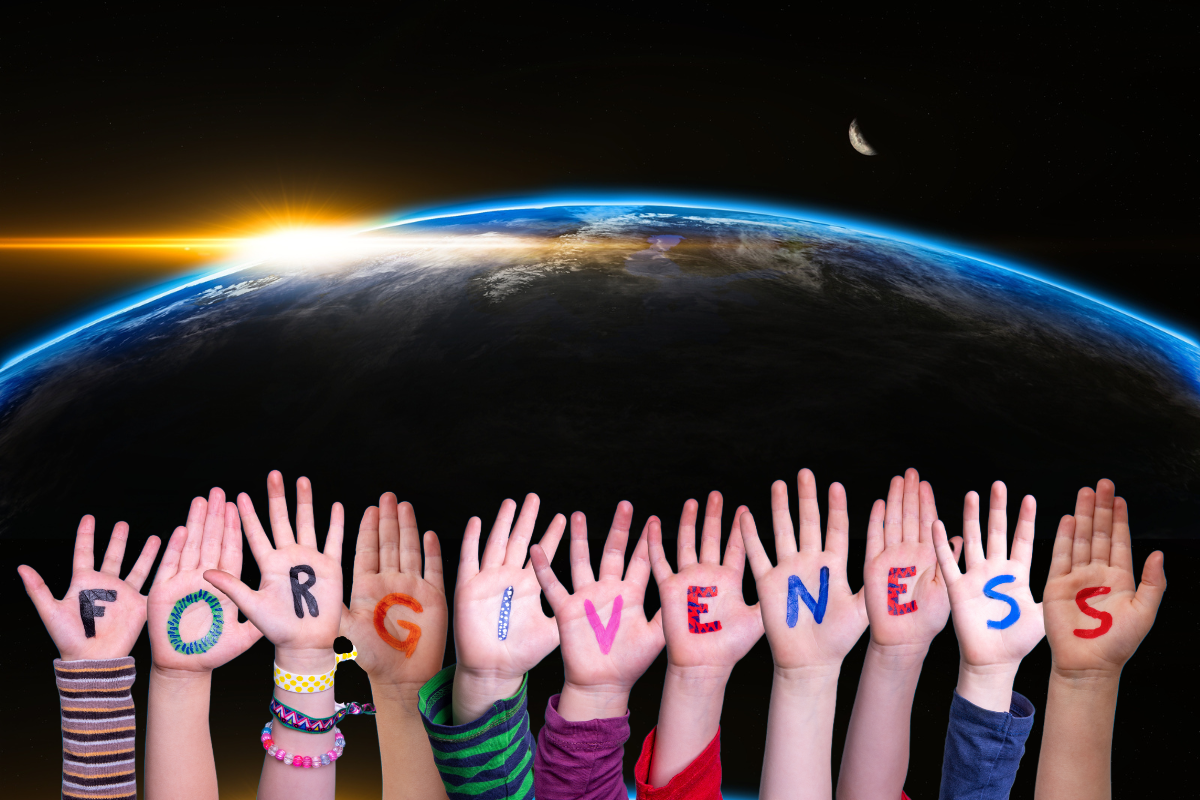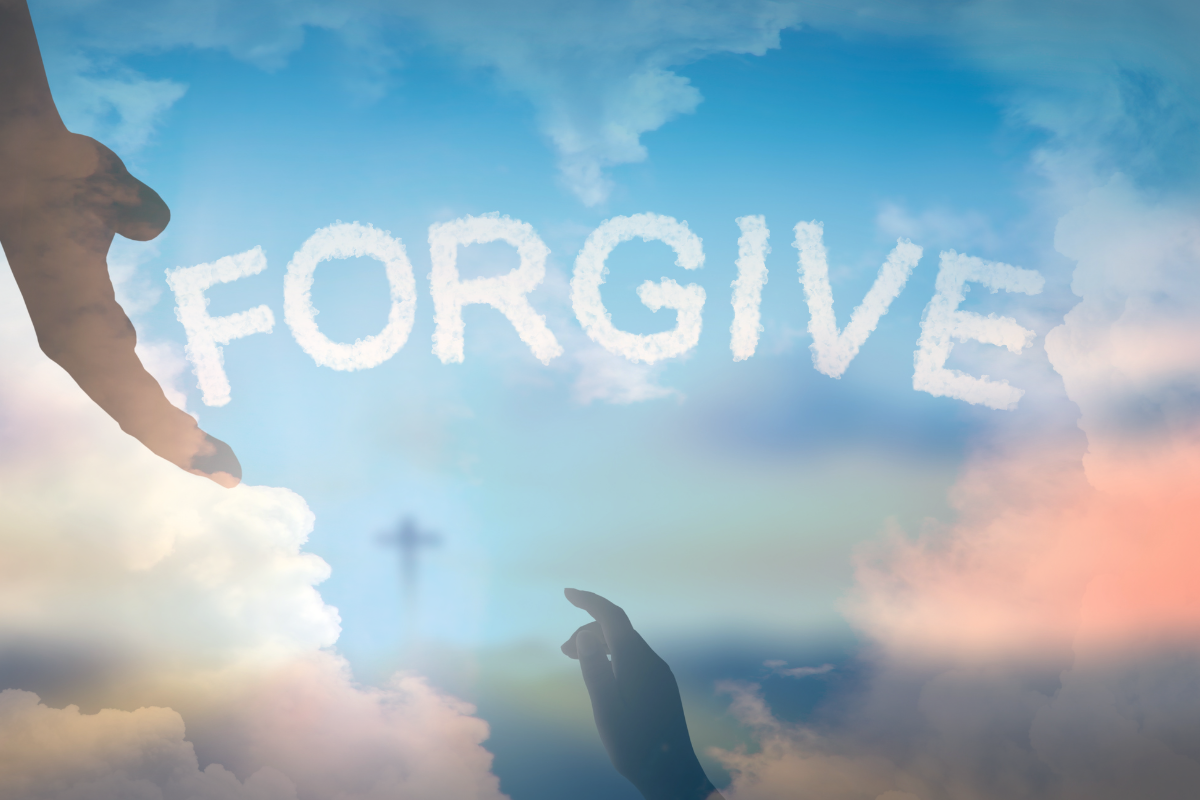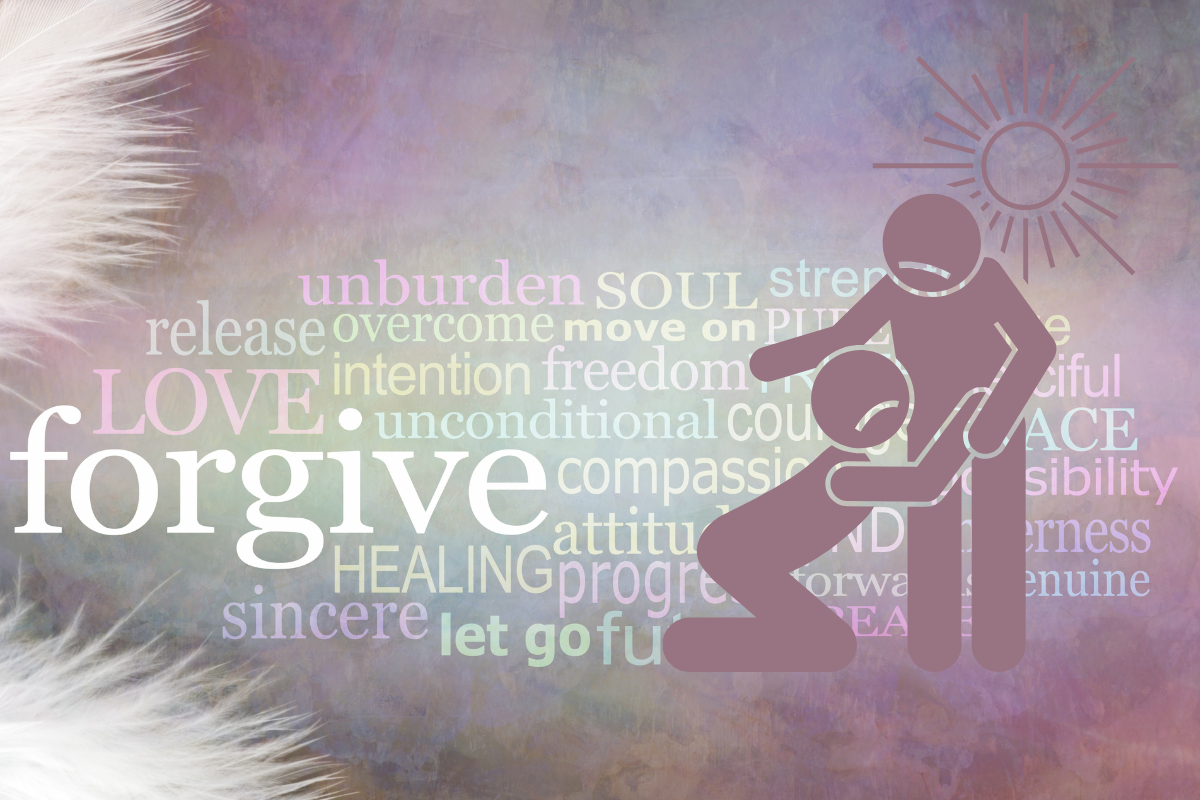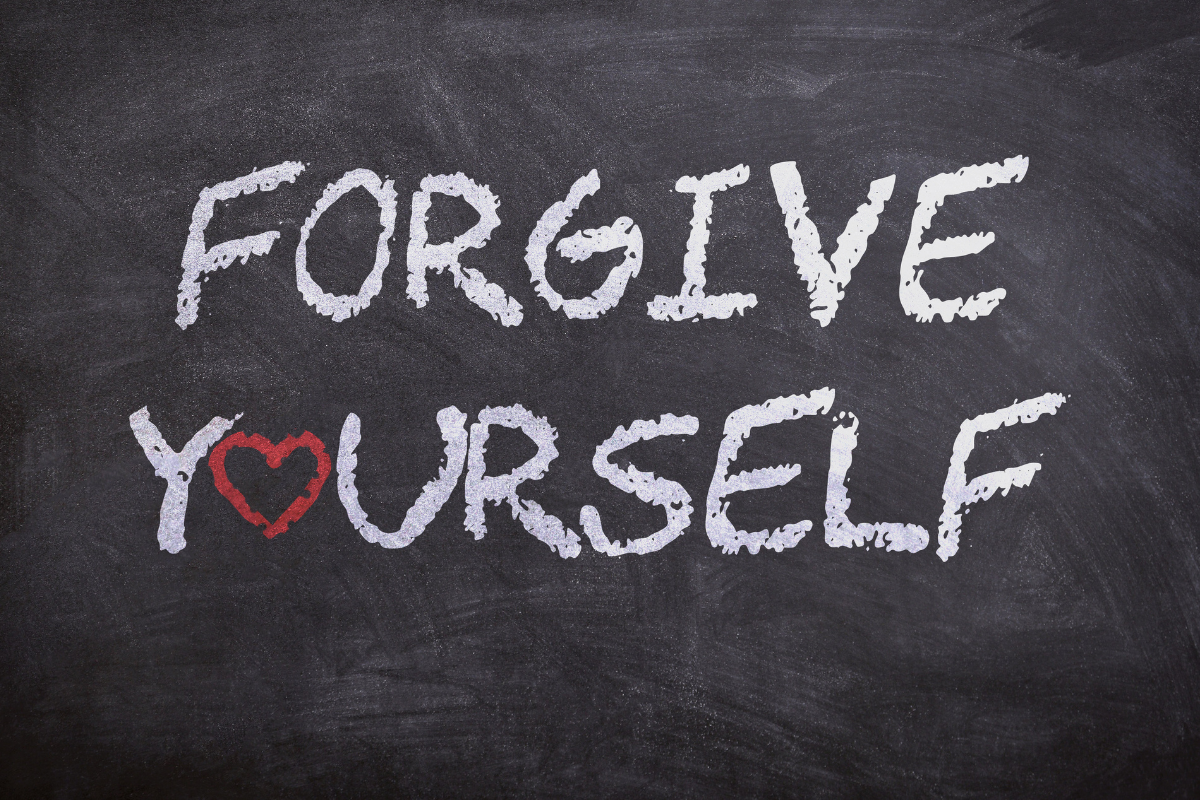Week Beginning June 26, 2022
Forgiveness in Our World
Forgiveness shines the light that casts out the darkness of evil in this world. “Do not repay anyone evil for evil; be concerned for what is noble in the sight of all. If possible, on your part, live at peace with all” (Romans 12:17-18). As we embrace forgiveness as our means to “conquer evil with good” (Romans 12:21), it is important to understand the relationship between good and evil.
The nature of God and all of His creation is good: “God is light, and in him there is no darkness at all” (1 John 1:5). Evil is not a creation of God but a privation of good. A privation goes beyond the simple lack of something. It is the absence of something that would normally be included in the nature of a thing. As such, good can exist without evil, but evil per se cannot exist without good.
“God created mankind in his image” (Genesis 1:27). Therefore, our human nature is created to achieve goodness. Free will allows us to cooperate with God’s grace in a properly-ordered world or to reject His gifts when we lose our way. Despite our flaws and trials after Original Sin, we do not become totally evil beings when we choose to engage in evil actions. We struggle as a community of sinners which hopes to become a community of saints through God’s loving mercy. Recognizing that our sin precedes our redemption, we challenge ourselves to overcome temptation and to forgive trespasses. “Be sober and vigilant. Your opponent the devil is prowling around like a roaring lion looking for [someone] to devour. Resist him, steadfast in faith, knowing that your fellow believers throughout the world undergo the same sufferings” (1 Peter 5:8-9).
As Christians, we believe that every person has inherent dignity and is worthy of respect. In Ephesians, Saint Paul teaches us that Christian readiness for combat is not directed against human beings, but rather against the spiritual powers of evil. When we “put on the armor of God” (Ephesians 6:10-17), we attempt to love the sinner and “hate” the sin. Despite the fact that our world is filled with temptations and injustices, that privation called evil could not exist if the underlying nature of creation were not good. To conquer evil, we fill its dark hole with the radiant goodness of forgiveness and love. When we turn our focus toward God, we shift our gaze away from our trials toward His ultimate goodness.
Although God does not create evil, He permits it to bring about a greater good. “Even though you meant harm to me, God meant it for good, to achieve this present end” (Genesis 50:20). Individually and as a faith-based community, we take the first step to overcome evil and promote the conversion of sinners with the goodness of prayer. Just as Jesus Christ offers his mercy to cleanse us of our sins, we offer our forgiveness for the benefit of our neighbors and ourselves. Through the process, we are strengthened by grace, and we grow together in peace.
This week, think about how you can love the sinner even if you “hate” their sin. Try to find common ground and shared humanity with those whom which you disagree. If you cannot do anything physically to remedy the ills of society, turn to prayer. Prayer is our fortress of defense against the wickedness and snares of the devil. When we turn to God in praise and thanksgiving, evil loses its hold and power over us. “Evil will slay the wicked; those who hate the righteous are condemned. The Lord is the redeemer of the souls of his servants; and none are condemned who take refuge in him” (Psalm 34:22-23).
Week Beginning June 19, 2022
Forgive Others
In order for us to become forgiving people, we have to set aside our cultural tendencies toward judgement. Saint Matthew vividly illustrates the hypocrisy of our eagerness to judge others in the following passage: “Stop judging, that you may not be judged. For as you judge, so will you be judged, and the measure with which you measure will be measured out to you. Why do you notice the splinter in your brother’s eye, but do not perceive the wooden beam in your own eye? How can you say to your brother, ‘Let me remove that splinter from your eye,’ while the wooden beam is in your eye? You hypocrite, remove the wooden beam from your eye first; then you will see clearly to remove the splinter from your brother’s eye” (Matthew 7:1-5).
Saint John similarly recalls, “Let the one among you who is without sin be the first to throw a stone at her” (John 8:7) when he describes Jesus’ reaction to the crowd wishing to punish the woman caught in adultery. Understanding the magnitude of our own sin that God has forgiven helps us release others from judgement and show compassion to them when they seek our forgiveness.
Saint Paul provides us with these simple instructions: “Put on then, as God’s chosen ones, holy and beloved, heartfelt compassion, kindness, humility, gentleness, and patience, bearing with one another and forgiving one another, if one has a grievance against another; as the Lord has forgiven you, so must you also do. And over all these put on love, that is, the bond of perfection. And let the peace of Christ control your hearts, the peace into which you were also called in one body. And be thankful” (Colossians 3:12-15).
For many of us, however, it is not a simple matter to cloak ourselves in those divine qualities and promptly, easily, and joyfully choose the path of forgiveness. In such instances, it is critical that we seek assistance from God through prayer. In the words of Saint John Chrysostom, “Nothing, you see, equals prayer. It makes the impossible possible, the difficult easy and the crooked way straight.”
This week, consider if there are any outstanding conflicts that continue to poison your spirit. If you are carrying a burden that is too big or painful to handle on your own, cry out to God. Lay your troubles at His feet, and ask for His help to overcome your hurt and forgive the person who harmed you. Only through God can we grow in the grace necessary to forgive the most heinous acts.
Don’t allow someone else’s transgressions to define the outcome of your life. When you choose forgiveness, you release their hold over you and choose the type of person you would like to become. “Do not return evil for evil, or insult for insult; but, on the contrary, a blessing, because to this you were called, that you might inherit a blessing” (1 Peter 3:9).
Saint Augustine reminds us, “If you are suffering from a bad man’s injustice, forgive him, lest there be two bad men.” Forgiving someone may be challenging. It may take time. But it opens the pathway toward healing, peace, and growth. By living the way of Jesus Christ, we demonstrate the power of our faith. Through our example, we share that gift with others and allow them to join us on our journey toward redemption. “Trust in the Lord with all your heart, on your own intelligence do not rely; In all your ways be mindful of him, and he will make straight your paths” (Proverbs 3:5-6).
Week Beginning June 12, 2022
Ask for Forgiveness
“Those who conceal their sins do not prosper, but those who confess and forsake them obtain mercy” (Proverbs 28:13).
We are called to love one another and to follow the example of Jesus Christ. This includes settling our misdeeds toward others: “Therefore, if you bring your gift to the altar, and there recall that your brother has anything against you, leave your gift there at the altar, go first and be reconciled with your brother, and then come and offer your gift” (Matthew 5:23-24).
Asking for forgiveness challenges us to admit we are wrong and we make mistakes. We are forced to face the person or people who suffered the most from our actions. When we place ourselves at the mercy of others, we expose ourselves to rejection or counter attacks. Yet in our vulnerability and human weakness, God sees divine strength: “For everyone who exalts himself will be humbled, but the one who humbles himself will be exalted” (Luke 14:11).
As we prepare to seek forgiveness, we begin with prayer. We ask God to forgive our transgressions and to reveal all aspects of the harm we have caused. We pray to learn from the situation, so that our sins gain meaning. We ask for a willing heart to apologize and the strength to honestly evaluate our flaws. We ask to grow in our humility, empathy, and compassion. We pray for those we have wronged, so that they may also heal. We pray for a peaceful resolution and for repair to our broken relationships. We thank God for helping us and for all the gifts He gives to us.
With a humble attitude of service, we approach those we hurt to provide a sincere and specific apology. During this process, we place their interests above ours. We give them an opportunity to share with us how they feel and how our actions affect them. Once we understand the amount of suffering we caused, we can pursue their forgiveness. We acknowledge their emotions, empathize with their plight, and accept responsibility for our part in their pain. We explain what happened without making excuses, becoming defensive, or blaming others. We express remorse, offer to make amends, describe our corrective behaviors, and promise to change. We remind them that despite our mistakes, we still value and care about them. As a gesture of goodwill, we offer a good deed or a gift beyond reparations to help console their misfortune.
Some circumstances necessitate special considerations. For example, when the person we harmed is very angry, we may have to wait for an appropriate time to make a full apology. If the situation is volatile, we may consider bringing a third-party peacemaker to help mediate. When the person we hurt is partly responsible for the wrongdoing, we take special care to ensure the apology is not accusatory. In all situations, we make sure our apologies do not cause further harm.
After we extend our regrets, we give the recipient time to process everything. Recognizing that trust is violated, we appreciate that the relationship may change. We accept new boundaries graciously and continue to work toward restoration.
If our apology is not accepted, we answer unforgiveness with love. We know forgiveness is difficult, and wounds take time to heal. We become better people by rectifying our faults, reestablishing communications, rebuilding trust, and avoiding wrongful behaviors.
God can make good out of our sins by helping us learn and grow. “We know that all things work for good for those who love God, who are called according to his purpose” (Romans 8:28). This week, think about your past sins with an emphasis on how they may have impacted others. If possible, seek forgiveness. If you are unable to ask for forgiveness, pray for those you have wronged. Consider ways you can help others who may have experienced similar offenses. Explore how you might respond differently in the future.
“Come now, let us set things right, says the Lord: Though your sins be like scarlet, they may become white as snow; Though they be red like crimson, they may become white as wool” (Isaiah 1:18).
Week Beginning June 5, 2022
Forgive Yourself
Through His mercy and love, God effects a transformation in us that allows us to extend mercy and love to ourselves and to others. The first step to forgiving ourselves is to experience God’s forgiveness. Once we learn how to forgive ourselves, we can seek forgiveness from others.
Self-forgiveness can be an uncomfortable process of honest introspection. We have to take ownership of our behaviors that are not aligned with our values. Was our transgression a mistake of ignorance or a morally-compromised choice? The answer might necessitate changing how we live.
We have to process the past and realistically face how we have harmed others and ourselves. Our unsettling emotions help us understand how our deeds impact others, find meaning in our mistakes, and navigate our future choices. While painful feelings can help our growth, retaining these emotions can inhibit our progress.
Moving through feelings of guilt and remorse actually promotes our healing. Guilt acknowledges our hurtful actions; remorse demonstrates regret and motivates restitution. Both feelings recognize that we are good people who make bad decisions. Both feelings remind us to make more considerate choices in the future. Our failures, shortcomings, embarrassments, and vulnerabilities are humbling opportunities for us to learn and grow from our mistakes. We accept that we are human, and we are not perfect.
Shame and self-loathing, on the other hand, can be destructive. These emotions use the defense of being a bad person to justify our bad behavior. “For godly sorrow produces a salutary repentance without regret, but worldly sorrow produces death” (2 Corinthians 7:10). Wallowing in self-punishment does not provide comfort to those we offend. Rather, it prevents us from taking responsibility, nurturing through love, and empathizing with others. A more effective penance would be making some form of reparation. Please note that if we feel shame from abuse or trauma that we suffered, we were not in control: it is not our fault.
Once we realize how we can move forward, we can stop re-living the event in our heads. We visualize a future free from regret and self-condemnation. Be patient, trusting that time heals. If you find yourself repeating the same offenses, redirect your behavior with prayer. It is always appropriate to ask for God’s help to carry out His will.
This week, challenge yourself with honest reflection regarding your past thoughts and actions. Do you continue to feel guilty about something that happened long ago? Are there any areas where you are having difficulty letting go and moving forward? Do you repeatedly make the same mistakes? Try to critically reconcile your perception of yourself with reality and work through your issues.
Self-forgiveness can reduce anxiety and stress, deepen our sense of compassion, improve our mental attitude, promote healthy relationships, and help us develop as loving and merciful people. We are rewarded with a sense of peace regarding our past and a spirit of hope regarding our future.




